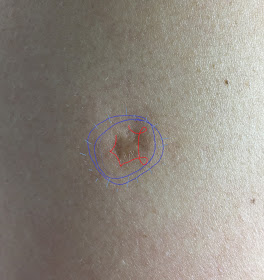Besides the comorbidity and age-related differential symptomatology seen in COVID-19 infected patients, another intriguing contrast has been the different outcomes seen in patients based on blood type. A new study from China indicates that people with blood type A may be more vulnerable to Covid-19. According to this study, patients with blood type A had higher rates of infection and developed more severe symptoms compared to non-A blood types. The blood type O was associated with a lower risk for the infection compared with non-O blood types.
This study, however, had multiple limitations, one being the limited sample size analyzed (2,200 COVID-19 patients in China and tens of thousands of healthy people). Also, the blood type-related differences in COVID-19 risk may, in fact, be due to certain antibodies in the blood. Further studies are needed and the original research article needs to be peer-reviewed (this means being scrutinised by other scientists to verify their validity and accuracy).
Blood types are determined by the presence or absence of antigens -- proteins that can trigger an immune response if they are foreign to the body. There are four major blood groups which are determined by the presence or absence of two antigens (A and B) on the surface of red blood cells. If you have the antigen A your blood type is A, if you lack the antigens A or B, your blood type is O. The USA National Center for Biotechnology Information (NCBI) research shows that about 41 % of the US population is type A and 44 % is type O. Type B and type AB are the rarest blood types.
A dichotomy recently found to potentially impact COVID-19 recovery outcomes is the vaccination profile of patients. A new epidemiological study proposes that the BCG (Bacillus Calmette-Guerin) vaccine appears to impact recovery by reducing morbidity and mortality for COVID-19. Preliminary evidence proposes that national differences in COVID-19 impact could be partially explained by the different national policies around BCG vaccination.
Originally designed to protect against the tuberculosis bacteria (TB), the BCG vaccination offers broad protection to some respiratory infections and reduced the number of reported COVID-19 cases in a country with BCG vaccination policy. The study reported that countries without universal policies of BCG vaccination (such as Italy, the Netherlands and the USA) have been more severely impacted versus countries with universal and long-standing BCG vaccine policies. Interestingly, countries that were late in implementing universal BCG vaccine policies (such as Iran in 1984) had high mortality, consistent with the idea that BCG protects the vaccinated elderly population.
Some countries, like the USA, are not vaccinating based on the low number of TB cases, the cross-reactivity of the vaccines with the TB test that they use and the “effectivity based on the early vaccination”. My opinion is that they should vaccinate their population, as TB is a highly contagious and dangerous disease that can be easily controlled through universal vaccination!
Fortunately, other countries, like Australia and the UK, are fast-tracking large-scale human testing to see if the BCG vaccine can protect health care professionals from contracting COVID-19. One of the trials will be conducted with 4,000 health care professionals in hospitals around Australia to determine if it can reduce COVID-19 symptoms.
Being born and growing up in Argentina, I was vaccinated as a child and 27 years later, when I was tested as a new employee at New York City’s Mt. Sinai Hospital… I tested positive for TB. An X-ray was required to prove that my lungs were healthy, and that I didn’t have TB, merely the antibodies that the BCG vaccine helped me produce to keep me safe from TB. Again, this is an anecdotal situation, I had contact with a person with COVID symptoms and I self-isolated myself, although I haven’t presented any symptoms… was it because my blood type is O? or was it because of the BCG vaccine? I don’t know but I am hoping we will get answers to this soon from research that would be correctly conducted, controlled and peer-reviewed.

BCG scar/ COVID-19 cartoon.
Thanks Tom Keeter and Ilse Daehn for the edits.
No comments:
Post a Comment